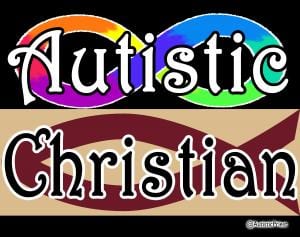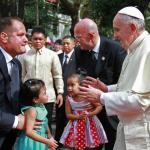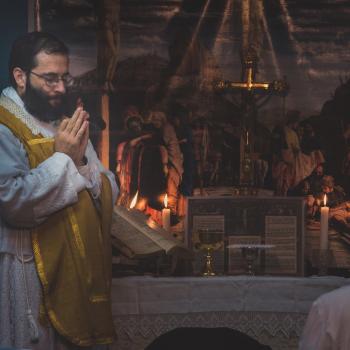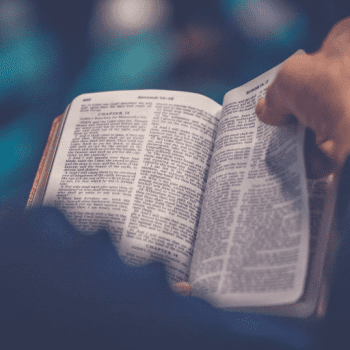
I am an autistic priest. When I was first diagnosed with autism as a priest, my superiors gave me a choice regarding how public I wanted to be about being diagnosed. One point always resonates with me when I think about being autistic. Not long after I told my local religious community, one of the priests pointed out that now I found cross while many others struggle to recognize what their cross is.
One autistic active on blogging and social media is Krista Holmes. She congratulates people when they first talk about their autism diagnosis. She describes how before being diagnosed, “It was like everyone else had the instruction manual for life handed to them and I was missing mine, and mine seemed to have different information and pages than everyone else’s.” Her diagnosis was like receiving this manual. She continues, “I finally have my handbook that just kind of explains everything about me and a lot of the questions that I’ve been answering.”
Neurodiversity: Disability But Not Just Disability
What does it mean to be autistic? Autism is a huge spectrum, but it involves a few key elements. For a diagnosis, a person needs to have challenges in non-verbal and social communication, sensory variation, and repetitive behaviors such that interfere with what would most consider normal. This means that we are disabled.
However, if we leave it there, I think we miss something. Autism also has elements beyond what’s disabling. We have all heard of autistic savants such as Jacob Barnett who started studying university physics at age 10. But many of us autistics who aren’t so exceptional still have certain advantages from how our brains are wired differently. I have an incredible memory for facts and have them all hyperlinked like a personal version of Wikipedia. This was so evident that before I was diagnosed, I got the nickname “Schneider-pedia.”
This brings us to the neurodiversity paradigm: it recognizes that there is natural variation in types of human brains, seeing both good and bad of conditions like autism. On the whole, at least in our society, autism is a disability due to these deficits. To understand this, it is important to separate autism from comorbid conditions like intellectual disability or depression. This paradigm sees an autistic individual with their strengths and weakness, rather than just defining them by weaknesses alone.
Why Embrace Neurodiversity
There are both human and Christian reasons to accept this paradigm. I will briefly review the human reasons as you can find them repeated elsewhere, then move onto the Christian in more depth.
Embracing this paradigm allows all to recognize that autism is a global condition for us that affects our whole person. When autism affects how we process sensory input, how we organize information, and how we communicate, it implicitly affects every aspect of our thinking and any action involving another person. Neurodiversity accepts both the good and bad that step from being autistic.
Christian Reasons to Embrace Neurodiversity
As Christians, we read in Genesis 1:26, “Then God said, ‘Let us make man in our image, after our likeness.’” If each of us is the image and likeness of God, we have to look at the good and bad in different traits. I’m 6’ 3” which makes reaching high places easy but also means I bump my head more often than many and I have to bend down to shower. I hope we can all agree that defining tallness just by bumping our head and the awkwardness of showers is inadequate. God made me autistic, or at the very least, he allowed it. In some ways, this is my cross to bear, in other ways, it makes certain things others struggle with easy. Embracing an autistic as the image and likeness of God includes embracing both the positive and negative aspects of being autistic.
We can also remember the new commandment Jesus gave us, “love one another; even as I have loved you, that you also love one another.” (John 13:34) Pope Francis invites us to, “Meet others where they really are.” Charity is embracing the totality of autism, not just looking at what is wrong with me.
Finally, we have Colossians 3. It begins in Verse 1, “If then you have been raised with Christ, seek the things that are above.” We need to seek to help all Christians strive to holiness in their whole selves. I look up and become Holy as an autistic Christian, not in spite of it or only because of it. In verse 11, it states, “Here there cannot be Greek and Jew, circumcised and uncircumcised, barbarian, Scyth’ian, slave, free man.” If we are accepting of every race or state, we should likewise be accepting of every neurological difference.
Conclusion
We Christians should embrace the neurodiversity paradigm. I think there are good human and good Christians reasons to embrace it. Hopefully, this can help us in reaching out to and evangelizing this marginalized community.
Note: there is not a huge audience for Catholic Autistic content so I need financial help to post about it. Please consider sponsoring me on Patreon.
Edits:
- I added “with autism” to “When I was first diagnosed as a priest” in order avoid misunderstanding.
- If you want items with the logo above on them, they are available from my RedBubble store.
















